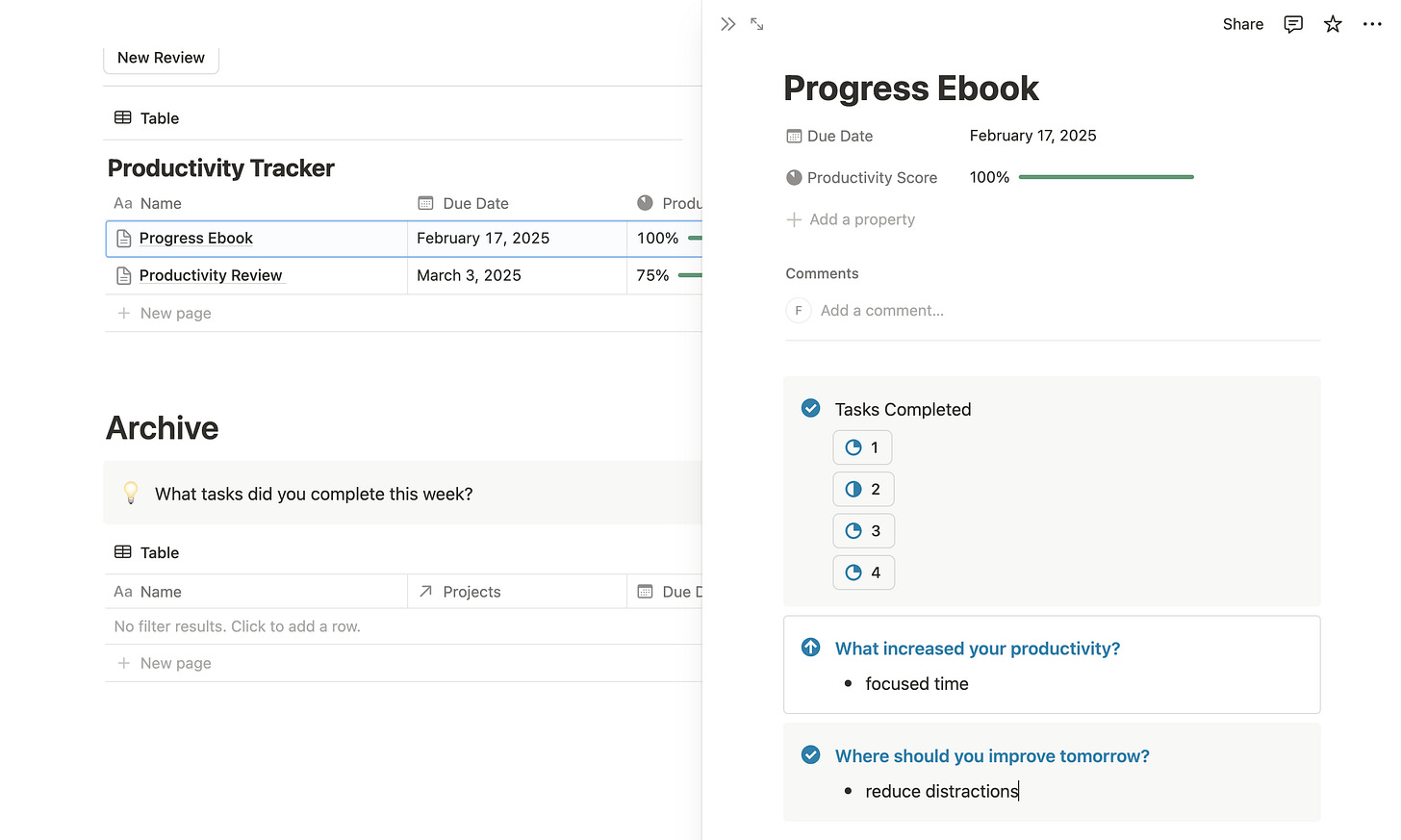How Herculean Wisdom Will Help You Overcome Procrastination
Why we need to think different to really overcome procrastination
This is a sample of a post exclusive to paid subscribers.
If you're ready to take your growth mindset to the next level, I invite you to join us here:
In ancient Greece, Hercules was a celebrated hero. He was both the most famous hero of ancient times and the most beloved.
His fame stemmed from his traits.
He was so strong and courageous.
His deeds were so mighty.
He endured all the hardships that were given to him.
However, in a fit of anger and temporary madness induced by the goddess Hera, Hercules killed his wife, Megara, and their children.
His punishment was no mean task. He was sentenced to perform twelve labors, feats so difficult that they seemed impossible.
Today, our focus is on the fifth labor: the stables.
In the particular labor, Hercules was required by Eurystheus to clean the Augean stables.
These stables, belonging to King Augeas, housed thousands of cattle and hadn't been cleaned in decades, accumulating a massive amount of dung.
Then Eurystheus made Hercules' task even harder: he had to clean up after the cattle of Augeas in a single day.
Zoom out a bit and imagine you have a huge task ahead of you that needs to get done by the end of the day.
Your default response is to feel overwhelmed and procrastinate.
Procrastination, as Dr. Finch tells us, “is often a coping mechanism for uncomfortable emotions rather than a simple lack of motivation.”
Procrastination is about being more focused on “the immediate urgency of managing negative moods” than getting on with the task, wrote another article.
Hercules sat and thought to himself how he could complete the fifth labor.
His first option was to shovel the stables, bit by bit. However, this would not work given his looming deadline.
Eureka!
Hercules found a brilliant solution. Using his legendary strength, he diverted the courses of two rivers, the Alpheus and the Peneus, making them flow through the stables.
The rushing water thoroughly flushed out all the accumulated filth in a single day.
If we take a moment to think about the fifth labor, we see that when faced by herculean tasks, our default approach would be procrastination and feeling overwhelmed with the mountainous task ahead of us.
King Augeas kept pushing off the task of cleaning the stables, and over decades, dung piled to a mountainous proportion.
Each minute, day, and week you keep ignoring what you need to do adds to the mental burden that you require to do.
There’s a particular line in the poem Hesiod's Works and Days that talks directly about this.
Do not put your work off till to-morrow and the day after; for a sluggish worker does not fill his barn, nor one who puts off his work: industry makes work go well, but a man who puts off work is always at hand-grips with ruin.
Looking closely at the scenario of King Augeas, we also see that inaction led to the repugnant problem in the stables.
It started with the workers ignoring cleaning the stables on day 1.
By day 100, the dung had accumulated to such a significant level that the workers would focus on other tasks instead of tackling this main problem.
This is one of the ways procrastination shows up.
You focus only on doing the minor tasks and filling your time with hacks rather than sitting down to address the main work you ought to be doing.
This can be as simple as choosing to scroll on social media to pass time when you feel overwhelmed.
However, there is a solution to this destructive habit of procrastination.
Hercules devised an ingenious solution after being overwhelmed: he diverted two rivers to flow into the stables.
Perhaps to address your procrastination, you need an entirely different technique. A completely new strategy to overcome your problems.
Maybe you have yet to break down your problem into small bits and schedule time to tackle each task until you are done.
Hercule’s story teaches us three takeaways:
Inaction will compound. Each time the workers failed to work on cleaning the stables, the work needed increased significantly.
Address the discomfort early. Don’t wait for too long before tackling your problem head-on and deciding to address it fully.
Think differently. Perhaps the reason why you are performing poorly in solving your problem is using the same old tricks. It’s time you completely reinvent your strategy.
These are some extra resources you can read and watch to learn more about how to overcome procrastination.
How I Overcome Procrastination
I am not immune to procrastinating, especially when I have to work on large projects.
In particular, when I have to write e-books, I find myself distracted and focusing on other tasks rather than working on the e-book.
Scenario
I want to describe a scenario where I am working on a 5-chapter e-book from Thursday to Saturday and launching it on Saturday evening.
So, what we will be scheduling are the tasks I will complete before launching it. These include:
Introduction
Chapter 1
Chapter 2
Chapter 3
Chapter 4
Chapter 5
Launch
During the period, I will also ensure that I manage my relationships and take care of my mental health to avoid burnout.
Step 1: Blocking out time for my relationships and mental health
To ensure my relationships are healthy, I set non-negotiable time to spend with my family and spouse.
For my mental health, I will consider daily walks and prayer and meditation as strategies that ensure I take a much-needed break from work to recharge.
My first step is to schedule these two in my Google Calendar. I use Google Calendar to manage my personal life and non-work activities.
This is what this looks like for the period Thursday, May 15th, to Saturday, May 17th, 2025.
This helps me to see the time I have to work on my project:
7am to 1pm (6hrs)
2pm to 5pm (3hrs)
Step 2: Scheduling my activities to develop the e-book
I use time blocks in my Notion Calendar to schedule the e-book chapters I am working on.
I learned this from Cal Newport, who says that he “dedicates 10 to 20 minutes every evening to build their schedule for the next day.”
When you take some time to think about how you want to spend time, you can eliminate the irrelevant tasks that do not add any value.
I schedule my Notion Calendar to work on the chapters from Thursday to Saturday.
With my time blocks set up, I can now work on my e-book and launch it.
The Limitation of the Notion Calendar
The problem with the Notion or Google calendar is the lack of accountability.
I observed that the tools are good at scheduling. However, there is no way to ensure you are doing what you said you will do, or rather, the lack of accountability is a problem.
This is what led me to develop the All-in-One Notion productivity system.
It syncs the tasks in the Notion calendar and filters out only what I need for the day. This brings clarity, and I can focus on only these tasks.
To do this, I ensure the Notion tasks are linked to my Notion workspace. From there, the system automatically filters out everything.
I also only plan my activities once in my Google and Notion calendars, and for the rest of the time, I use the All-in-One productivity system to track my daily work.
Click the Open in Notion button.
Add properties such as the priority (Morning, Afternoon, Evening), project, and the status.
The system will filter out what we need to do today as below.
To ensure accountability, there is a Pomodoro timer added that helps me track time and whether I need to take a short break while working.
The beauty of the timer is that it allows you to add your own music playlist from Spotify if you love working with a music background.
I can also add notes related to the tasks. for example, areas I need extra research on.
The system also helps me review my day based on the number of tasks I have done. Suppose I complete chapters 1 and 2 and my walks and meditation by the end of the day. I will track my progress this way.
The progress tracker also has prompts to review my performance. What increased my productivity? Where should I improve tomorrow?
Finally, the system has an archive where I can see the tasks I completed by the end of the day.
With these 3 apps, I have a system that ensures I succeed not only once but always.
I would love for you to also experience the freedom of automating your planning.
Plan everything at once. Your meetings, family activities, work activities, walks, and gym sessions are on your calendar.
Sync them to the system and allocate them to different times of the day.
Then, daily, use this system to narrow your focus only on the day’s tasks.
The system is a virtual room that helps you work for a dedicated period and take necessary breaks to renew your mind.
That's it for now.
Watch out for next week’s productivity insights in your inbox.
As always, fresh ideas are welcome. Please feel free to send in your feedback, thoughts, questions, and suggestions—I read them all!
If you want to pass this newsletter on to a friend, here's a link to make it easier.
Catch you again soon.















Wisdom for the ages. Thanks for bringing a timeless story to the forefront of our everyday lives that can help us master our habits.
Love the example you gave of scheduling out a project into tinier, manageable increments.
Excellent insight on how to overcome that wretched beast, Procrastination. 👹 Thanks for sharing! 🙂